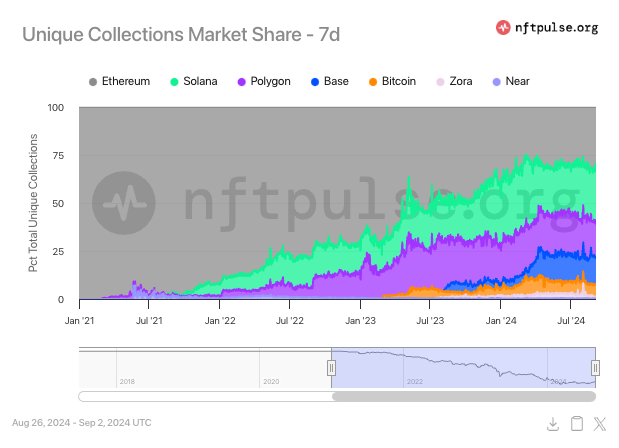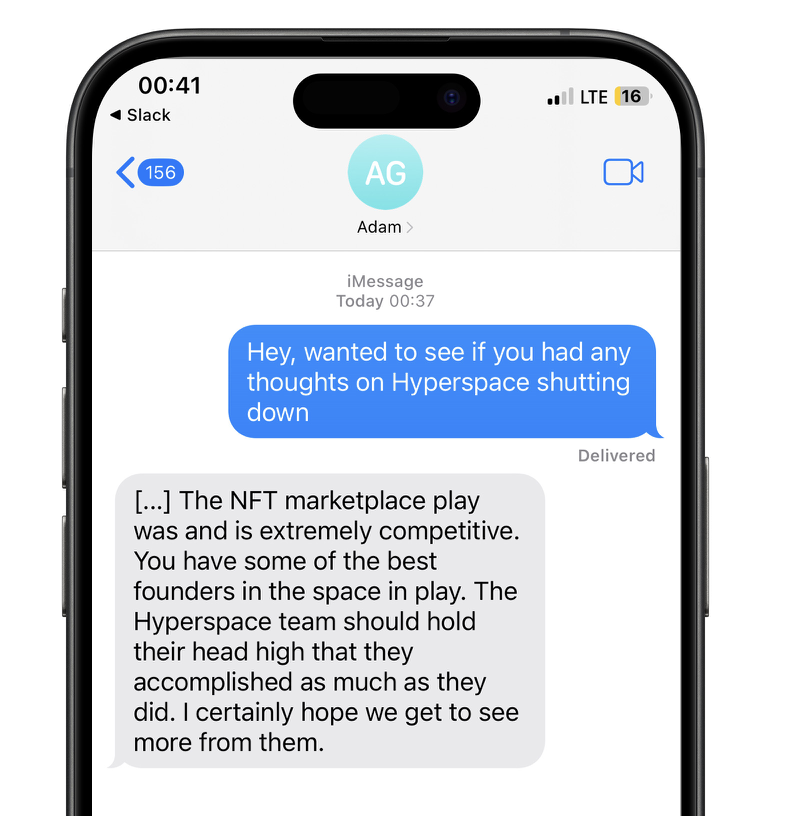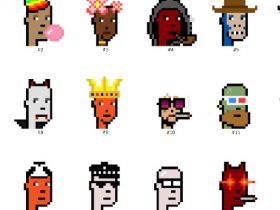Today, enjoy the Lightspeed newsletter on Blockworks.co. Tomorrow, get the news delivered directly to your inbox. Subscribe to the Lightspeed newsletter.
Howdy!
I made the mistake of going to the 6th Avenue Trader Joe’s right after work yesterday. I thought I’d never make it out of the crush of business casual or yoga gear-clad shoppers.
My neighborhood grocery store barely ever gets packed, and you also don’t hear people yapping into airpods about closing deals. This is why Brooklyn is the best borough. But I digress:
Autopsy of a Solana NFT marketplace
Yesterday, the longtime Solana NFT marketplace Hyperspace announced it would be closing up shop on Sept. 17. It was the latest salvo in a drawn-out decline for the NFT space, which never really regained its footing after the widespread crypto collapse of 2022.
Hyperspace launched in September 2021 as hype was growing around the nascent Solana blockchain, and SOL neared what is still an all-time high price. Back then, it was a Solana NFT tracking tool. In February 2022, shortly after NFT marketplace OpenSea hit a $13.3 billion valuation, Hyperspace raised $4.5 million in a round led by Dragonfly and Pantera.
In the time since, Hyperspace operated an NFT marketplace and launchpad and added accessibility for the Sui and Avalanche blockchains. But Hyperspace never really reached hyperspace.
Sources around the industry — and Hyperspace’s own co-founder — told me that Hyperspace’s demise was caused by an inability to find a meaningful niche in an NFT market that never regained its vaunted 2021 status.
Hyperspace co-founder Kamil Mafoud told me he didn’t see the platform growing large enough to justify venture-scale returns. He said Hyperspace tried multiple times to adapt, and the platform had found decent success by “being scrappy.”
“But at least for me personally as a founder, I don’t want to be in the position of fighting the market. It’s much better for us to go attack a larger market and grow that way,” Mafoud said.
When I asked what this larger market would be, Mafoud said he and his team hadn’t yet decided, but acknowledged that “NFTs are a much smaller TAM than almost all other sectors within crypto.”
That certainly seems to be the case. NFT trading volumes remain a fraction of what they were in 2021 and 2022. Popular NFT marketplace Magic Eden plans to branch out beyond NFTs. In the past handful of months, Starbucks, X and GameStop all shut down NFT initiatives while lawsuits rained down over ill-fated collections. There’s already a pretty-large graveyard of past Solana NFT startups. Oh, and the SEC served OpenSea a Wells notice last week.
It makes you wonder how NFT platforms can be profitable businesses these days.
Bangerz, an anonymous contributor to NFT platform 3.land, said maybe NFT platforms need to right-size their expectations.
“NFTs being used as this massive way for a project to raise $$ to do something is super super over,” bangerz said. “[A]rt is fun, and culture is fun…NFTs are fun when they’re not $300 lol.”
Mafoud said something similar when I asked him about the success of memecoins relative to NFTs.
“NFTs are a scarcity thing,” Mafoud said. “Which did very well until they didn’t.”
Mafoud added that he will be remaining in the Solana ecosystem with his next venture, and that Hyperspace “lost some focus” on Solana while branching out to other chains.
— Jack Kubinec
Zero In
I’ve been looking at NFT Pulse a good bit lately. It has some really well-aggregated NFT data.

Here, you can see how Solana, Polygon and Base have clawed NFT market share away from Ethereum over the past two years. In early 2021, the NFT market was basically all on Ethereum. Today, Ethereum holds 33% market share while Solana is at 28%.
And despite the challenges facing NFT marketplaces, some venues are doing alright, particularly on Solana. Magic Eden has seen $56 million in trading revenue over the past year, while OpenSea and Tensor collected roughly $26 million and $12 million to round out the top three, according to NFT Pulse.
— Jack Kubinec
One Good DM
A message from Adam Gutierrez, senior developer support engineer at Phantom:








Leave a Reply